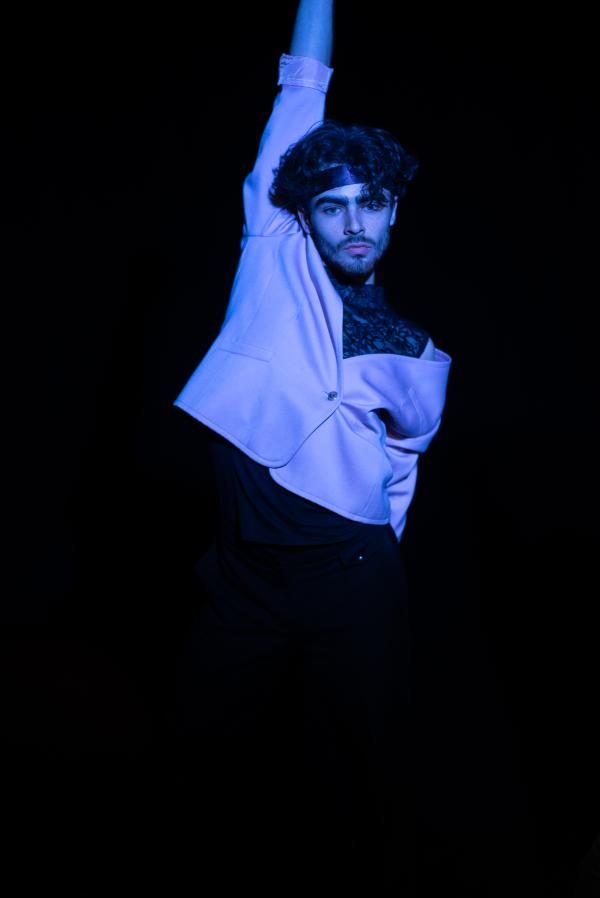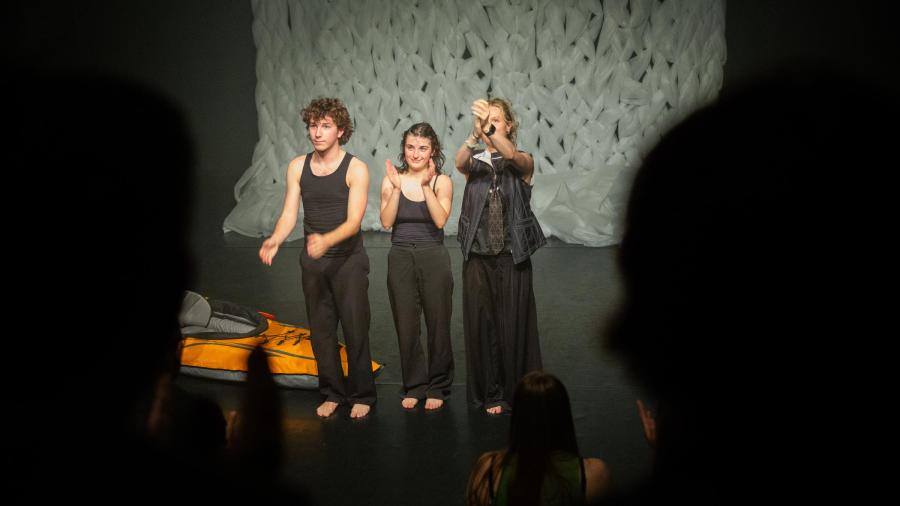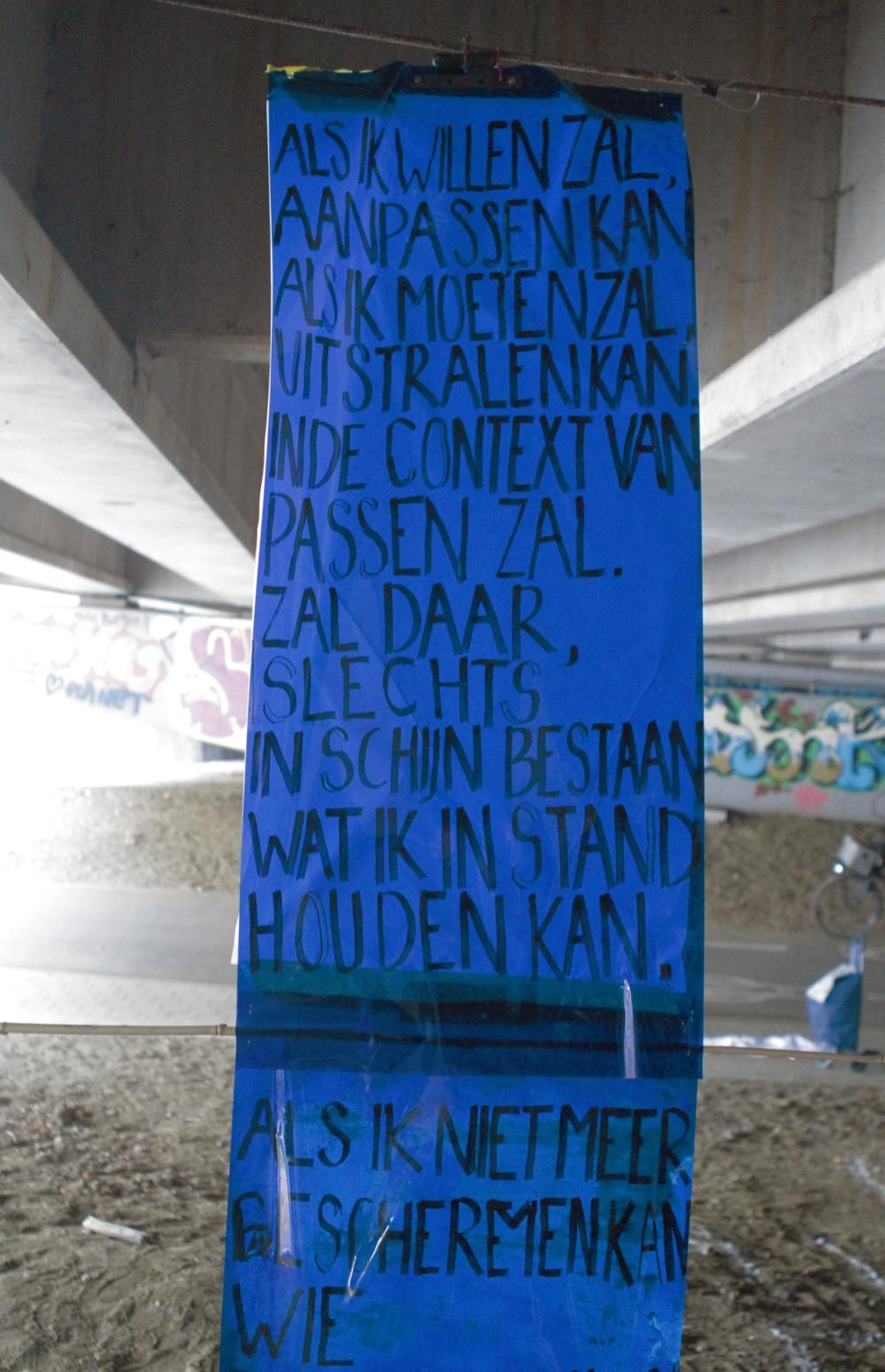
Campus Leuven / Lemmens
DRAMA: WRITING AND MAKING
Central to 'Writing for Performance' is the making, creating and writing of texts with the aim of performing them. You invent stories that give shape to your vision and fascinations, and you acquire your own artistic signature. The programme starts from writing, creating and performing in a theatrical context: the stage is the primary context of your authorship.
You are coached individually and collectively, by various award-winning authors, in writers' rooms and in writing modules that focus on a specific form or style. Theoretical courses help you build up a broad frame of reference. You gain insight into how your body and voice work and learn to use them on stage.
You cooperate with students from the actors’ programme in joint creative projects. In four open studio weeks you experiment with materials and working methods. We teach you to master stage techniques and coach you in setting up your own performances.
Through interdisciplinary projects with the other programmes at LUCA School of Arts, you also develop writing skills for other media and disciplines, such as film, music, gaming and visual arts.
You learn to function broadly and flexibly, as a creating and performing artist. You develop your craft in relation to the world and the contemporary arts field. With a strong entrepreneurial spirit, with a caring, critical and committed attitude.
- Every week, you participate in a collective studio practice (writers' room), which takes shape in an individual portfolio and in your own performances. You explore in practice what text can be like, today and in the future.
- In training modules, you develop writing skills in different styles, forms and genres. You develop your writing practice as an author and maker for the stage (theatre dialogues, spoken word), for film and television (screenplay), for audio & new media (e.g. podcasts) and in the context of visual arts.
-
In broadening and deepening six-week modules, you work both collectively and individually on writing, acting and making skills. Via electives, you can focus on writing for camera, spoken word or interdisciplinary work.
- At the end of your Bachelor programme, you present a full-fledged performance, in cooperation with other theatre makers.
Exchange students
We offer a full curriculum in Dutch. Exchange students with interest in a combined training in writing/acting/theatre making are welcome to join in the second or third year of our Bachelor programme. Exchanges preferably take place in the second term (February-June), when the deepening and broadening of artistic skills and the development of a personal artistic profile are key.
In collective modules the exchange students can set up collaborations in English with other students. In the studio practice they have coaching and feedback in English, or (for writing) German.
Together with the exchange student we develop a tailor-made programme, taking into account the student’s personal preferences and needs. This will allow the students to have an enriching learning journey.
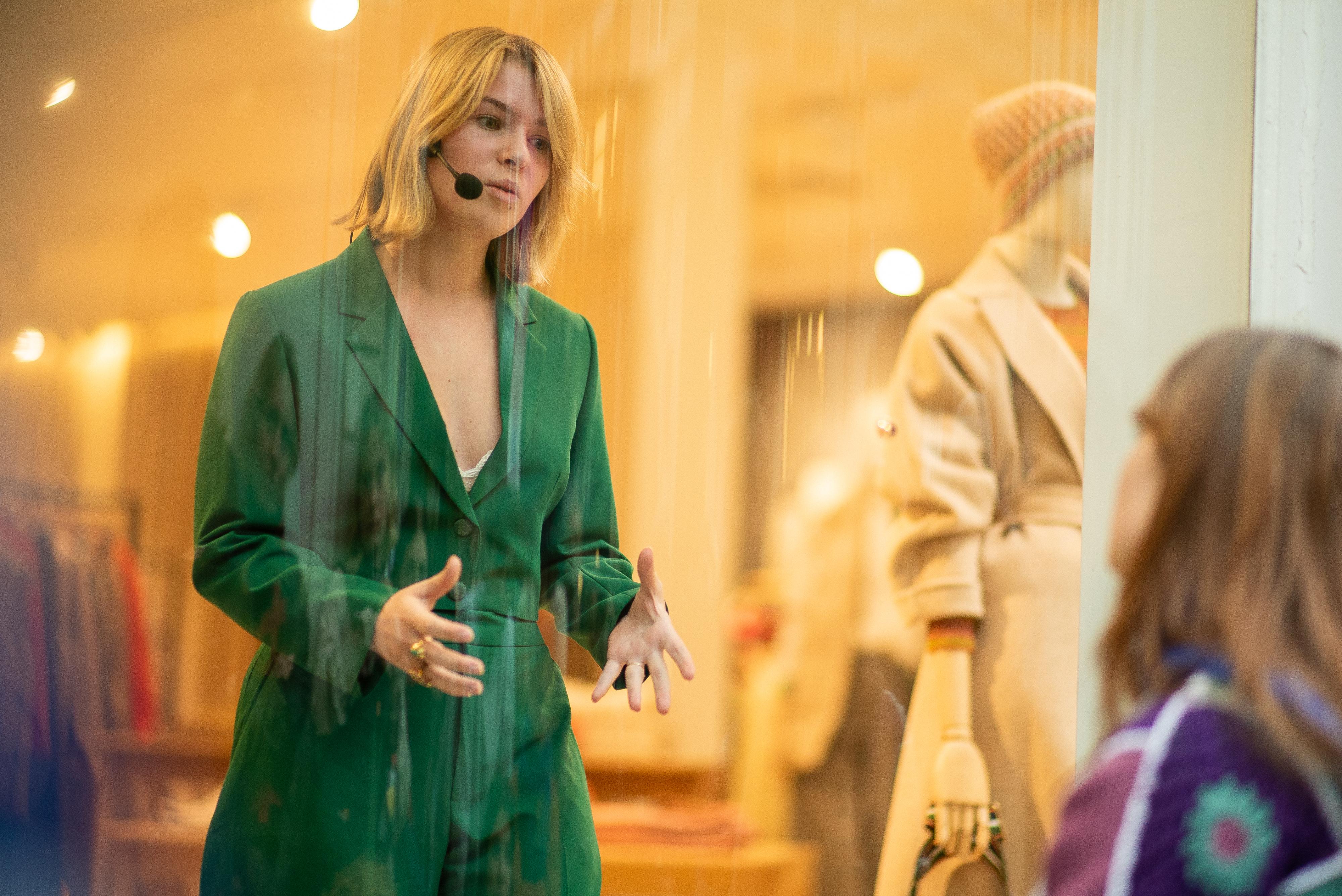
A good command of English (level B2) is required to make the most of your stay with us. Campus Lemmens does not own student accommodation. Therefore, you will have to rent a room on the private housing market for the duration of your stay. To help you in your search, please visit to the website of the KUL or contact our student support services.
Interested in this course?
All Erasmus+ Exchange Students need to apply via the exchange application procedure of LUCA School of Arts. During your application process, you can indicate the LUCA campus of your choice and the exchange programme you wish to apply for. Notice that not all programmes are open for incoming exchange students in both semesters. An overview can be found here.
- The deadline for the Autumn Semester / full year is April 1
- The deadline for the Spring Semester is October 1
Outcome Exchange Application
The outcome of the application can be expected within 4-6 weeks after the application deadline. Both you and your international coordinator will be informed about the result of your application by e-mail. No need to inquire about the outcome yourself.
Where do you have class?
Facilities & campus life
- Our very own campus, situated in a parc in one of Europe's oldest university towns
- An artistic meeting space for theater maker and musicians
- A coworking space with rehearsal studio's concert halls and theater venues
- An art centre with concerts, performances and theater shows, lectures and artist talks, book launches, graduation shows and showcases
- An expertise centre for young perfomnce artists with an art library, production support and a lending service
- An intricate network of cultural partners where students rehears and show the results of their projects
Location
Lemmensberg 3
3000 Leuven
info.lemmens@luca-arts.be
+32 2 447 15 00
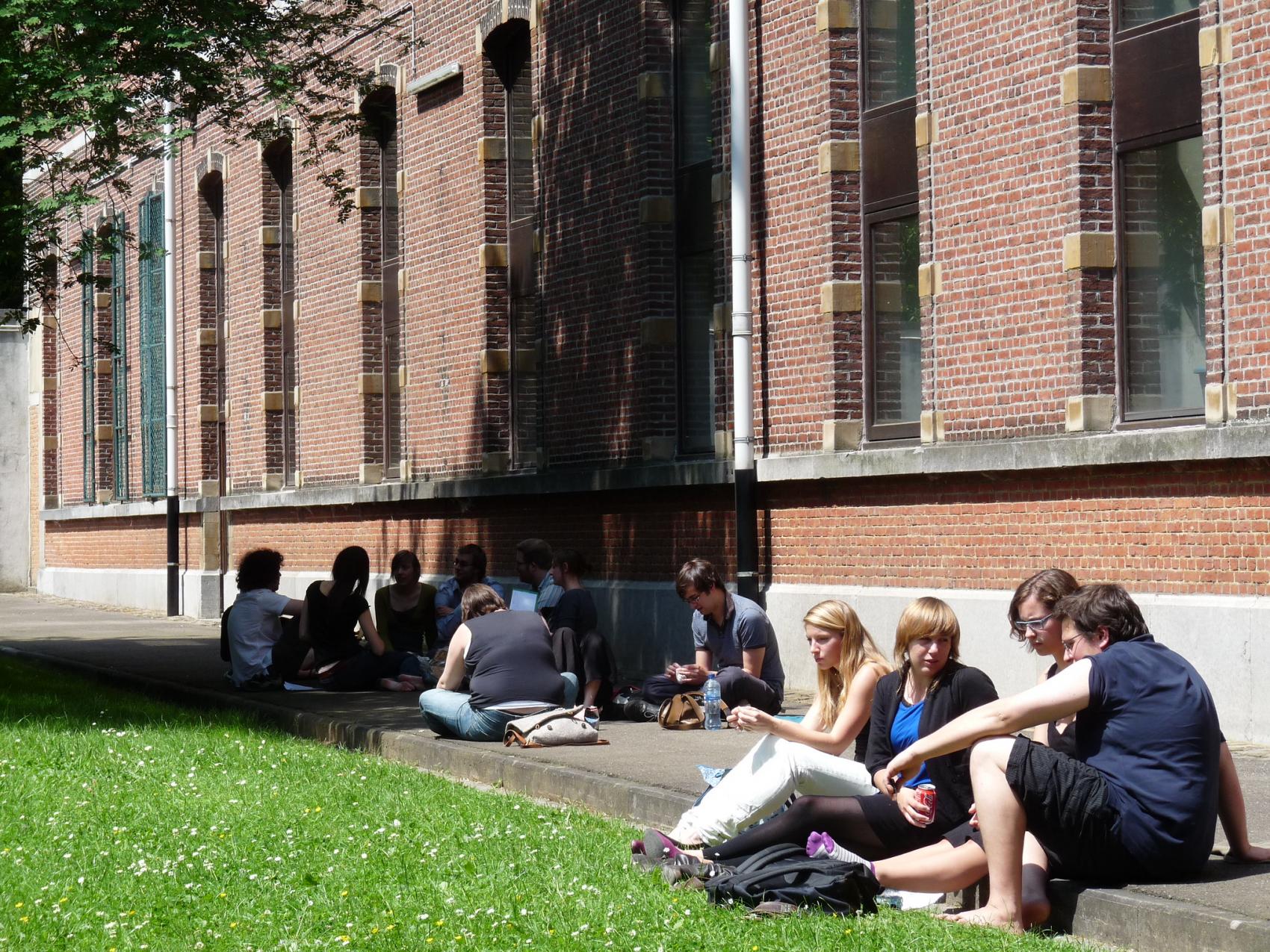
Contact
If you need more information, don't hesitate to contact us:
International Coordinator Campus Lemmens
Diana Solomonidou
diana.solomonidou@luca-arts.be
Campus Lemmens
Lemmensberg 3
3000 Leuven
+32 2 447 15 00
info.lemmens@luca-arts.be
At LUCA we attach great importance to the quality of our courses
If the basic principle of the policy plan means that 'quality is our driving force', and that every aspect of the policy can be tested against this, then LUCA undeniably wants to develop and nurture a strong quality culture: a culture that leaves based on trust in people with talent and expertise, and which is aimed at valuing, inspiring and improving.
The formal quality framework for training within LUCA was named KOPERA, which stands for: Critically Analyzing the Quality of Training with Peers in Own Direction.
For KOPERA, LUCA starts from a vision of quality care that is based on trust and aimed at valuing, inspiring and improving.
During the six-year KOPERA cycle, each training course receives a panel of critical friends who examine the implementation of the quality characteristics and examine how the training contributes to the general LUCA policy.
The final element of KOPERA is the ultimate assurance of training quality. The key question is: "Does the program have a good quality culture that follows the 'plan-do-check-act' circle?"
LUCA publishes a quality sheet for each course. You can find this on the Education Quality page.
